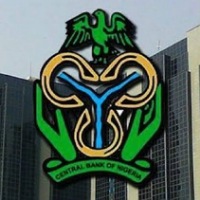Banking
Naira Retreats Third Day as Nigerian Oil Prices, Production Fall
ABUJA: The naira slid for a third day on concern slumping oil prices and production will weaken Nigeria’s foreign exchange reserves and government finances.
 The currency of Africa’s biggest oil producer depreciated 0.2 percent to 158.63 per dollar by 11:44 a.m. in Lagos, the commercial capital. The naira has retreated 1.6 percent this year, according to data compiled by Bloomberg.
The currency of Africa’s biggest oil producer depreciated 0.2 percent to 158.63 per dollar by 11:44 a.m. in Lagos, the commercial capital. The naira has retreated 1.6 percent this year, according to data compiled by Bloomberg.
Qua Iboe and Bonny Light crude, the nation’s main export grades, both slid for a seventh day to their lowest levels since July 2012. West Texas Intermediate oil yesterday fell for the fourth time in five days as a U.S. government report showed production rose to the highest level since July 1992 and gasoline demand waned.
“This implies that the government will be less able to build up reserves in the Excess Crude Account, thereby exposing the economy to a possible oil price shock,” Melissa Verreynne, an analyst at NKC Independent Economists, said in an e-mailed note from Paarl in South Africa. “In addition, the oil benchmark price was increased from the previous year’s budget, while global oil prices are expected to average lower this year than in 2012.”
Nigeria sets a price per barrel when calculating oil revenue in the budget, and saves any money collected above that level in the Excess Crude Account to meet spending shortfalls. President Goodluck Jonathan in February approved this year’s budget after lawmakers raised the benchmark oil price to $79 a barrel from the $75 proposed by the government.
The Central Bank of Nigeria uses the country’s reserves to stabalize the naira, selling dollars to lenders at twice-a-week auctions.
Production Falls
The West African nation’s oil production fell below projections in the first quarter due to crude theft and pipe line sabotage, the state-owned Nigerian National Petroleum Corp. said yesterday. The output ranged from 2.1 million barrels per day to 2.3 million barrels per day, less than an estimated 2.48 million barrels per day, it said.
Nigeria depends on crude exports for 80 percent of government revenue and 95 percent of its export income. The nation’s foreign exchange reserves have climbed 10 percent this year to $48.7 billion as at April 16, according to central bank data published on its website.
Borrowing costs on Nigeria’s local-currency debt due January 2022 rose six basis points, or 0.06 percentage point, to 11.11 percent, according to yesterday’s prices compiled by Bloomberg.
Nigeria’s inflation rate eased to 8.6 percent in March, from 9.5 percent in February, the lowest in almost five years, as the effect of higher fuel prices a year ago fell out of the calculation, the West African nation’s statistics bureau said yesterday.
Yields on Nigeria’s $500 million of Eurobonds due January 2021 slipped three basis points to 4.032 percent today.
Ghana’s cedi climbed less than 0.1 percent to 1.9475 per dollar in Accra, gaining for the first time in three days.
Banking
Millions of customers still stranded worldwide 24 hours after GT Bank online operations suffered attacks
By Yemie ADEOYE
GT Bank, one of Nigeria’s leading banks, with operations across Africa and the United kingdom, and with an asset base of about US$3.11 trillion is under a cyber attack which has left millions of its customers across the world stranded in the last 24 hours.
The bank which was renowned for its seamless online operations at inception has suffered dwindling online efficiency in recent years and this current attack didn’t come as a surprise to many of its numerous customers. However, it is becoming worrisome that over 24 hours after its online operations went down, the bank has not been able to arrest the situation and restore its online services.
Several customers of the bank took to their X (formerly known as twitter) handles to express their frustrations at the bank, as several of the customers in the diaspora are unable to access their accounts and carry on with their transactions. A customer , Jeff55 who lamented on his X handle about the development, stated that it is a thing of shock that a bank of this size couldn’t afford to have the necessary tools and experts to ensure a full protection of its online operations in this age and time.
Another customer Dimma stated that while Cybersecurity training may seem tedious, the recent #GTBank hack is a stark reminder that everyone is just a click away from a devastating attack.
Several media organisations had reported that hackers have stolen GT Bank website, and intercepted customers Data in massive phishing operation.
At the time of filing this report, Biztellers.com.ng checks on the banks website shows that it is still down and unaccessible, and neither GT Bank media and communications unit nor any of its agencies or surrogates have commented officially on the development.
Banking
Tinubu commends increased crude production to 1.61 mbpd
Says output surge buoyed by reforms he announced in May 2024 to address gaps in PIA
President Bola Ahmed Tinubu on Sunday declared a resurgence in the oil & gas industry, commending the increased crude production to 1.6 million barrels per day.
The president, who said this in a national broadcast, maintained that the resurgence was buoyed by the reforms he announced in May 2024 to address the gaps in the Petroleum Industry Act (PIA).
Nigeria’s crude oil output got a boost to 1.61 million barrels per day in July 2024 through the president’s directive and the industry leadership provided by the Nigerian National Petroleum Company Limited (NNPCL).
Acknowledging what he called a resurgence of the once-declining oil and gas industry in his Sunday-morning broadcast to the nation, President Tinubu said that oil investors are coming back to Nigeria.
He said; “Our once-declining oil and gas industry is experiencing a resurgence on the back of the reforms I announced in May 2024 to address the gaps in the Petroleum Industry Act. Last month, we increased our oil production to 1.61 million barrels per day, and our gas assets are receiving the attention they deserve. Investors are coming back, and we have already seen two Foreign Direct Investments signed of over half a billion dollars since then.
Read Also : BREAKING: Sell Crude To Dangote Refinery In Naira – Tinubu To NNPC Ltd
“Fellow Nigerians, we are a country blessed with both oil and gas resources, but we met a country that had been dependent solely on oil-based petrol, neglecting its gas resources to power the economy.
We were also using our hard-earned foreign exchange to pay for and subsidise its use. To address this, we immediately launched our Compressed Natural Gas Initiative (CNG) to power our transportation economy and bring costs down.
This will save over two trillion Naira a month, being used to import PMS and AGO and free up our resources for more investment in healthcare and education.
“To this end, we will be distributing a million kits of extremely low or no cost to commercial vehicles that transport people and goods and who currently consume 80% of the imported PMS and AGO.
“We have started the distribution of conversion kits and the setting up of conversion centres across the country in conjunction with the private sector. We believe that this CNG initiative will reduce transportation costs by approximately 60 per cent and help to curb inflation.”
Banking
FBN Holdings On Course For AGM

Plans are in top gear for the 11th Annual General Meeting (AGM) of the FBN Holdings Plc.
The management made this disclosure in a notice it filed with the Nigerian Exchange Limited (NGX) on Thursday, where it averred that it has not been served with any court order against the proposed AGM.
According to notice, which was signed by the acting Company Secretary, Adewale Arogundade, FBN Holding said, “The attention of FBN Holdings Plc (the Company) has been drawn to recent media reports purporting that the Company has received a Court Order stopping it from holding the Annual General Meeting (AGM) scheduled for August 15, 2023.
“We confirm that this assertion is a false narrative as the Company has, as at the date hereof, not been served with any court order to stop the forthcoming AGM.
“Suffice to mention that the AGM is a statutory meeting of Shareholders that must be held in accordance with the law, further to which the Company will notify the regulators and the public as appropriate if there is any lawful order to restrain the Company from conducting same.
“We hereby assure our esteemed Shareholders that the AGM shall hold on August 15, 2023, as planned and we look forward to their attendance and active participation at the meeting.”
However, court orders published in national dailies showed that the Federal High Court in Lagos had issued an order against the financial institution, barring it from holding its 11th AGM.
The order was entered pursuant to a petition by Olusegun Onagoruwa, in suit No: FHC/L/CP/1271/2022. It was addressed to the bank and some other bank officials.
It read, “Take notice that unless you obey the directives in the judicial order contained in the order made on July 15, 2022, by the Federal High Court, Lagos, by refraining from proceeding with the 11th Annual General Meeting of FBN Holdings Limited proposed for August 15, 2023, from seeking approval to issue or raise share capital in any manner whatsoever, from appointing or confirming the appointment of new directors, or in any other manner taking any step towards implementing, actualising enforcing resolution of the 10th Annual General Meeting of FBN Holdings Plc held on June 20, 2022, or in any other manner overreaching, disobeying or undermining the said order of a court, you will be guilty of contempt of court and you will be liable to be committed to prison and to there imprisoned.”
Biztellers brought you a report that a segment of shareholders had staged a protest at the headquarters of the bank on Monday, calling for the AGM to be held, as well as soliciting regulatory interventions.
It is expected that at the AGM, FHN Holdings is poised to breathe life into plans to seek shareholders’ approval to raise N150bn fresh capital via a rights issue and elect new directors including billionaire, Femi Otedola and Samson Ariyibi among other resolutions.
















